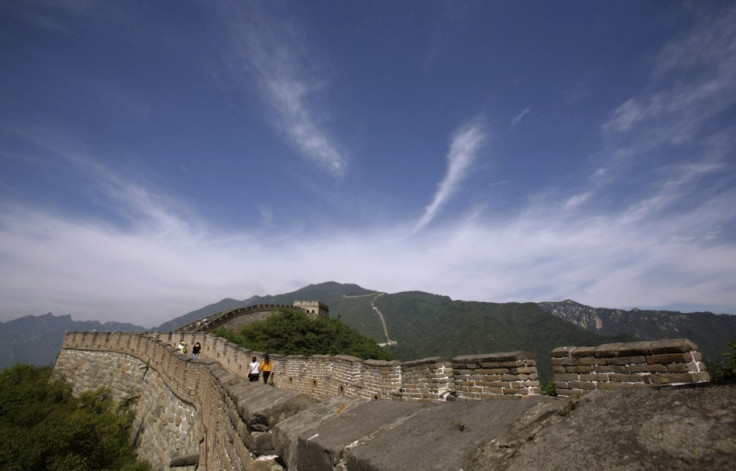Canadian tourist accidentally kills elderly Chinese woman on Great Wall of China

A Canadian tourist visiting the Great Wall of China accidentally knocked over and killed an elderly Chinese woman on Wednesday (8 April), the South China Morning Post reports.
Cui Hongfang, 73, from Heilongjiang Province in north-eastern China, hit the back of her head on a corner of the stone wall after the 38-year-old Canadian woman collided with her running down steps on a steep section of the wall.
"The foreigner was moving really fast. She was chasing [someone] and laughing and wanted to go between me and my wife," Cui's husband told the Beijing News.
Her family said she immediately lost consciousness, was bleeding from her mouth, nose and ears, and stopped breathing shortly after the incident on the Mutianyu section of the Great Wall.
Incident ruled an 'accident'
Police and paramedics were unable to arrive on the scene for around an hour, due to its remote location.
"It happened right in one of the security camera system's blind spots," an official of the Mutianyu Great Wall Tourism Services Company told news website China.org.cn.
"We have rules and warnings for tourists, asking them not to chase each other, run fast or play around on the steep sections of the Great Wall."
Police decided not to charge the Canadian tourist, whose family name is Fortin, after interviewing her and witnesses.
Police have ruled the tragedy an accident, although they are still investigating the circumstances of the Chinese woman's death.
Death investigation continuing
Cui's son said his mother was in good health before the accident. Some of her relatives expressed dismay that Fortin was not charged with an offence, such as involuntary manslaughter.
Her relatives were advised to file a civil lawsuit against the tourist, who was due to fly home to Canada on Saturday (11 April).
Attorney Yin Fuqiang, told the Beijing News that involuntary manslaughter results from the perpetrator's negligence, while an accident is due to unforeseen circumstances.
"If the Canadian woman stumbled and was not able to control her movements herself, it [should be settled in] a civil suit," Yin said, "but if she didn't stumble, then the scenic area's management should be contacted by authorities to see if they already have rules forbidding people to run on the Great Wall. If there are rules in place, then [the Canadian woman] must be held criminally liable."
© Copyright IBTimes 2024. All rights reserved.





